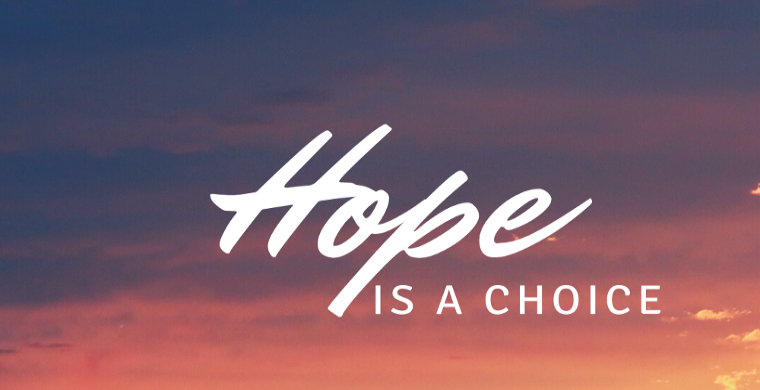HOPE IS A CHOICE
Duane W.H. Arnold, PhD
Special to VIRTUEONLINE
www.virtueonline.org
March 14, 2021
As I look back over the last forty plus years of life in the church, it seems to me that there has been a steady diminishment of hope as that essential quality of the Christian life has steadily been replaced by fear. Moreover, that change has not been limited to any single section or faction of the Church. Instead, it has encompassed divergent theological points of view, disparate denominations and diverse faith traditions. This fear is expressed in a variety of ways and for a variety of reasons. We have seen it in the evangelical prophecy updates in which we have been assured, apparently incorrectly, that the end of the age is imminent. We see it in the culture wars, now having morphed into politics, in which every societal change is heralded as the end of civilization as we know it. This atmosphere of fear, however, is not limited to the "usual suspects". We also see this fear among mainline denominations as attendance plummets, seminaries close and clergy age with fewer and fewer replacements on the horizon. The structural division among Methodists merely echoes what has already taken place, albeit in a less orderly manner, among Episcopalians, Presbyterians and Lutherans. If you are a Roman Catholic, fear of further revelations of abuse cloud the immediate future, even as conservatives and progressives vie for influence in the denomination's corridors of power.
Now, it must be said, throughout the history of the Church there have always been those who have profited from, and motivated populations, with fear. We may think of the penitential preachers at the time of the Black Death in the fourteenth century who motivated the wandering bands of flagellants. Likewise, through his preaching of a fear of judgement, Savonarola ignited the bonfire of the vanities in Renaissance Florence. In our own colonial past, the Puritan preacher, Jonathan Edwards, vividly spoke of sinners in the hands of an angry God as similar to "loathsome" insects held over the fires of the pit of hell into which they might be dropped. These, however, are historical examples which arose out of very specific environments and, at least in the case of the fourteenth century penitential preachers and Savonarola, were marginal figures and were limited, for the most part, to a particular locale. Additionally, the goal of this fear was specifically repentance, even if at times misguided.
Today, or at least it seems to me, the fear of change, the fear of the future, is being exploited with another goal, and that is to produce outrage and anger, usually directed at someone else or some other group. The production of outrage and anger, by the way, is an equal opportunity strategy employed alike by theological liberals and conservatives. In my own tribe, for every break away Anglican railing against the Episcopal Church, there is an equally vociferous Episcopalian blaming the break aways for destroying the denomination. Among the SBC, the defenders of Beth Moore are as vehement as her detractors. This, of course, is not even to speak of societal changes and the social media amplified cheerleaders of doom (many from within the Church) who count every change, or every resistance to change, as the end of the world as we know it.
Is it possible that there is a better way?
I recently watched an interview with a business leader who happens to be a friend of mine. She has been immensely successful in her career as an executive. As a believer, she considers her work as a calling or a vocation. When asked about the concept of leadership, she replied that a "moral leader" even in business, is defined by a shared humanity and by building a community that is infused by trust and, yes, even with love. Finally, she spoke about the need to be future oriented which was only possible if it was guided and propelled not by fear, but by hope... and hope is a choice we make.
Hope is a choice.
In the end, fear, anger and outrage may motivate, but it is only for the moment and the circumstances of the moment. Hope, on the other hand, almost by definition, is not bound by circumstances and is certainly not bound to this moment in time. Hope takes us beyond the present into the future and it does so without fear. As the writer of Hebrews says, "Now faith is confidence in what we hope for and assurance about what we do not see..." As I witness the hand wringing of some and listen to the doomsayers, I have occasionally wondered, "Do they believe in God?". What I mean by that question is, do they believe God has a plan for the future... their future... my future? Do they believe that future is somehow dependent upon them?
Hope is a choice. It is not mere wishful thinking. It is a dynamic assertion of our faith.
For myself, I choose to hope. Hope in God, hope in God's providence, hope in God's plan for all of us...
Duane W.H. Arnold, PhD
The Project














